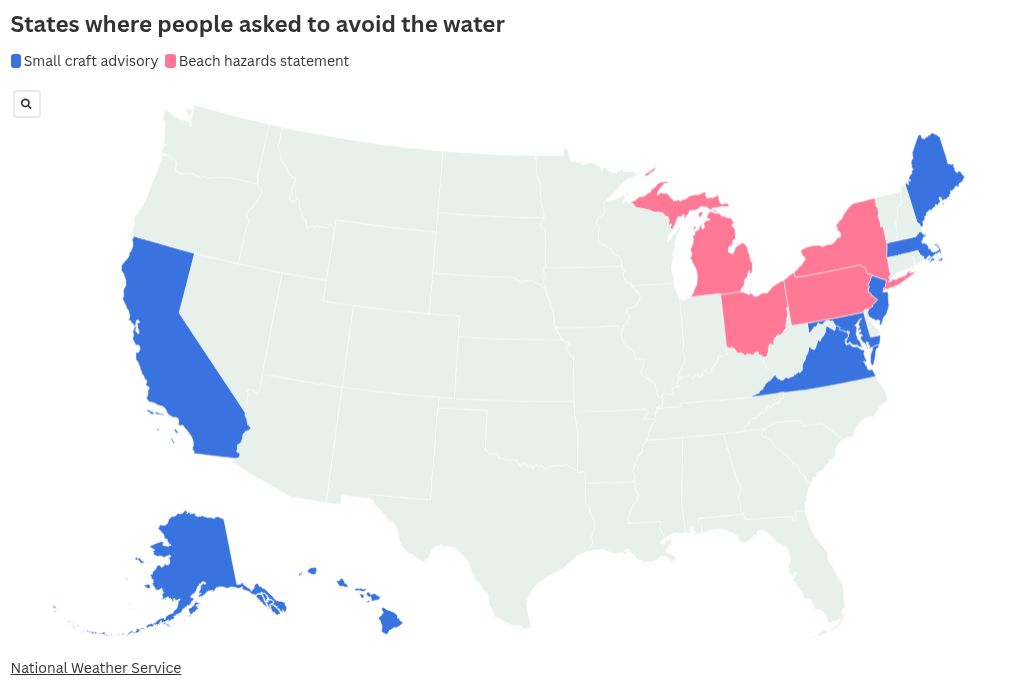Multiple alerts from the National Weather Service (NWS) are warning beachgoers and boaters in 12 states to remain out of the water amid dangerous conditions this holiday weekend.
Why It Matters
Beaches are popular recreation destinations for millions across the United States, especially over holiday weekends. People will likely flock to the beach to celebrate Memorial Day, but they should follow official guidelines for at-risk areas.
Dangerous rip currents, undertows and large waves pose hazards in at least a dozen states on Friday.
What to Know
As of Friday morning, beach hazards statements warning of dangerous currents or large waves were in place for Michigan, New York, Ohio, and Pennsylvania.
“High wave action and dangerous currents will lead to life threatening swimming conditions,” the statement issued by the NWS office in Marquette, Michigan, said. “Waves in rapid succession can tire swimmers quickly.”
Beach hazards statements will expire by Friday night, although it’s possible they could be reissued later this weekend depending on conditions.
In most instances, meteorologists advised swimmers to remain out of the water. In addition to strong currents, water temperatures are cold following a dip in temperatures earlier this week, which could tire swimmers out even sooner.
Other states were advising boaters against venturing into the waters as well. A small craft advisory is in place for California, Alaska, Hawaii, Virginia, Maryland, New Jersey, Massachusetts, and Maine.

“Inexperienced mariners, especially those operating smaller vessels, should avoid navigating in hazardous conditions,” a small craft advisory issued by the NWS office in San Francisco said.
In most cases, the small craft advisories were in place through Saturday or Sunday evening, making it especially important for boaters hoping to celebrate the holiday weekend to remain cognizant of dangerous conditions.
What People Are Saying
NWS meteorologist Steven Welch, who works at the Buffalo, New York, office, told Newsweek: “Winds are causing waves 3 to 5 feet, sometimes up to 6 feet at times. When those waves come in and hit the shore and then retract back out to the lake, they can cause some undertows and rip currents.”
He added: “If it’s warmer, especially during Memorial Day weekend, [the beaches] do get pretty busy. With it being a little cooler this weekend, it’s going to be a question mark as to how many people are going to be out there.”
NWS office in Cleveland, Ohio, in a beach hazards statement: “Wind and wave action will cause currents on the lakeshore. Swimmers should not enter the water. Currents can carry swimmers away from shore through a sand bar and along structures extending out into the lake.”
What Happens Next?
Although the beach hazards statements will expire by Friday night, small craft advisories will remain in place through the weekend. Beachgoers and boaters are advised to check any warnings or alerts that are in place before venturing out into the water.
The post People Advised to Avoid the Water at Beaches in 12 States appeared first on Newsweek.




